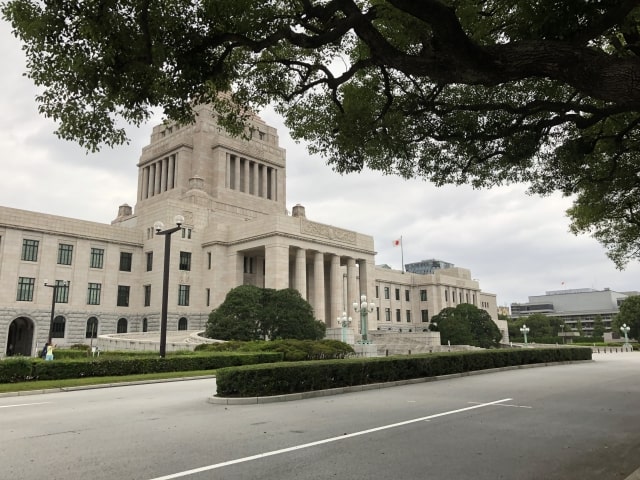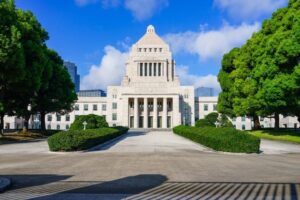In the context of Japan’s 2024 Liberal Democratic Party (LDP) presidential election, the phrase “Ishiba Shock” has emerged, capturing widespread attention. The term refers to the potential economic and market consequences if Shigeru Ishiba, a veteran politician, were to become the leader of Japan’s ruling party and possibly the country’s next Prime Minister. This concept is trending across social media platforms, such as X (formerly Twitter), as investors and political analysts alike ponder what his leadership could mean for Japan’s economy.
Who is Shigeru Ishiba?
Shigeru Ishiba is a long-serving member of the LDP with a reputation for championing regional revitalization and rural development. He has garnered strong support from LDP members in rural areas, who resonate with his focus on agricultural and local economic policies. However, within the LDP’s upper ranks, he has faced opposition, particularly due to his critical stance on certain leadership decisions made by former Prime Ministers, including Shinzo Abe. Despite this, Ishiba remains a powerful political figure, consistently attracting significant support from party members.
What is “Ishiba Shock”?
“Ishiba Shock” refers to the potential shockwaves that Ishiba’s economic policies might send through Japan’s financial markets if he were to assume leadership of the LDP. Known for his cautious stance on monetary policy, Ishiba has expressed skepticism about the aggressive monetary easing that has characterized Japan’s recent economic strategy, particularly under Abenomics. His approach raises concerns among investors, as any shift in monetary policy could have ripple effects on Japan’s stock market and currency.
Ishiba’s Economic Policies and Potential Market Impact
Ishiba’s key economic positions differ significantly from those of previous leaders. One of his primary stances is a more measured approach to monetary easing, which contrasts with the policies of his predecessors who have pushed for aggressive financial stimulus.
- Possible Tightening of Monetary Policy
Ishiba’s reluctance to continue with large-scale monetary easing programs has led to speculation that, if he were to lead the country, Japan might move towards monetary tightening. This could include reducing the scale of the Bank of Japan’s asset purchase programs, which have been a cornerstone of the country’s economic recovery in recent years. - Divergence from Abenomics
While Abenomics was centered around aggressive monetary easing, fiscal stimulus, and structural reforms, Ishiba has criticized aspects of this strategy, particularly the over-reliance on monetary policy to fuel economic growth. His call for more sustainable economic measures may introduce uncertainty to markets, especially those that have benefitted from years of stimulus.
Potential Impact on Stock Prices
If Ishiba becomes Prime Minister, his policies could lead to significant fluctuations in stock prices. His reluctance to endorse large-scale monetary easing could be perceived by investors as a move away from the market-friendly policies that have supported stock prices in recent years.
A tightening of monetary policy could result in lower stock valuations, particularly for export-driven industries that have thrived under a weaker yen. Investors might respond by pulling back on riskier assets, leading to a possible downturn in the Japanese stock market.
Currency Implications (Strengthening Yen)
Ishiba’s potential shift towards monetary tightening is also likely to impact the yen. As monetary easing is reduced or halted, Japan’s currency could appreciate, making the yen stronger relative to other currencies. This could be problematic for Japanese exporters, who benefit from a weaker yen that makes their goods more competitive in global markets.
A stronger yen, while potentially helping to control inflation, could hurt Japan’s export-oriented economy by reducing demand for its products overseas. This is one of the key concerns that underpins the “Ishiba Shock” concept, as investors brace for the possibility of a rapid currency shift.
A Historical Parallel for the “Ishiba Shock”
The term “Ishiba Shock” is reminiscent of past instances where political or economic changes led to significant market reactions in Japan. For example, previous shifts in Japan’s monetary policy, particularly towards tightening, have led to stock market downturns and currency fluctuations. Investors and financial markets are now on high alert, anticipating that Ishiba’s leadership could produce similar effects.
What Lies Ahead?
As the LDP presidential election progresses, the question of who will lead Japan next remains uncertain. If Ishiba emerges victorious, the global financial community will be closely watching his policy decisions. While some welcome his approach as a path to sustainable economic growth, others fear that his more cautious stance could lead to market instability in the short term. The outcome of this election could very well set the stage for the next phase of Japan’s economic trajectory.
Conclusion
In summary, the term “Ishiba Shock” captures the unease surrounding Shigeru Ishiba’s potential leadership of Japan. His cautious stance on monetary policy, coupled with his criticism of Abenomics, has led to widespread speculation about how his leadership could affect both the stock market and the currency. As investors brace for possible changes in Japan’s economic strategy, the term “Ishiba Shock” continues to circulate as a symbol of the market’s uncertainty.









Comments